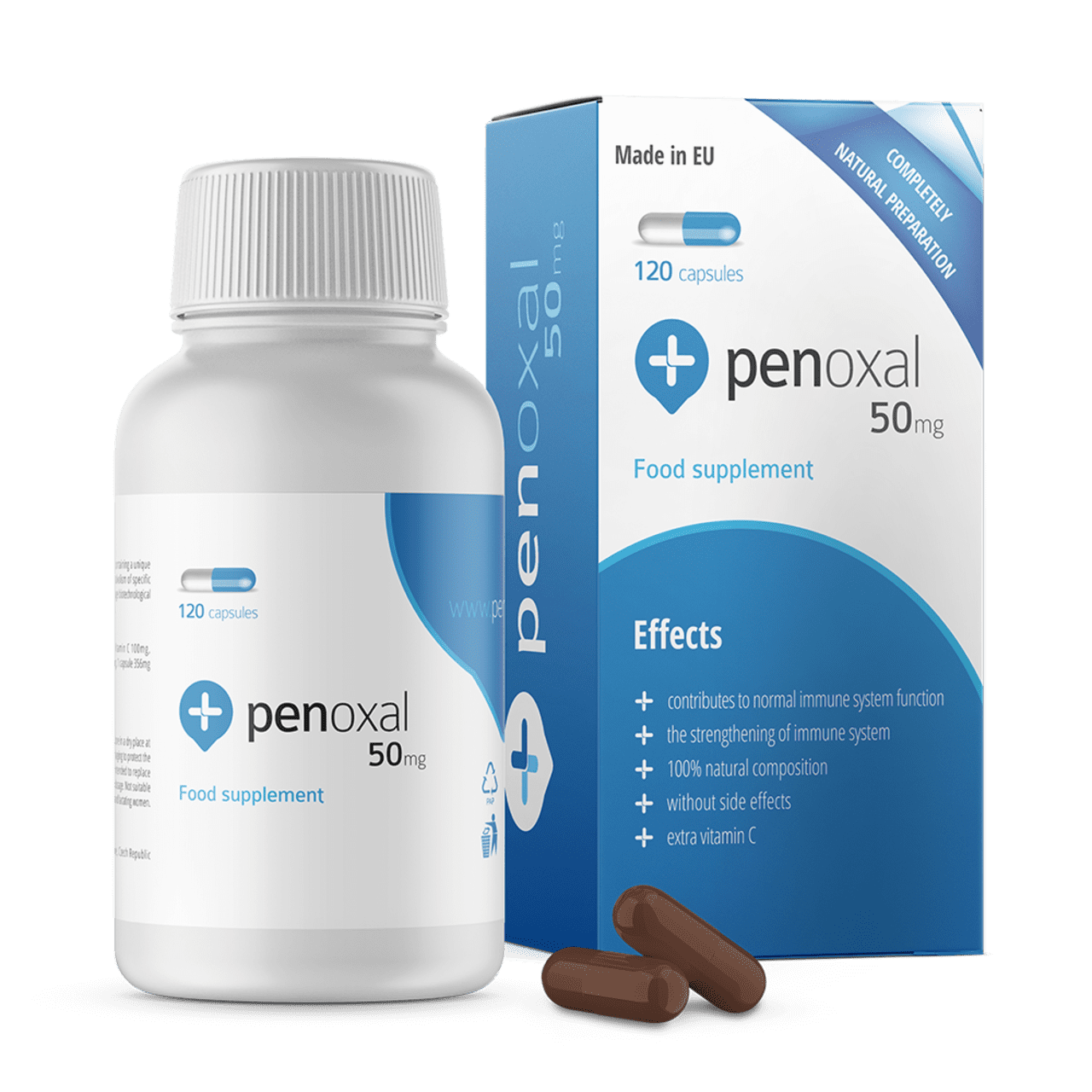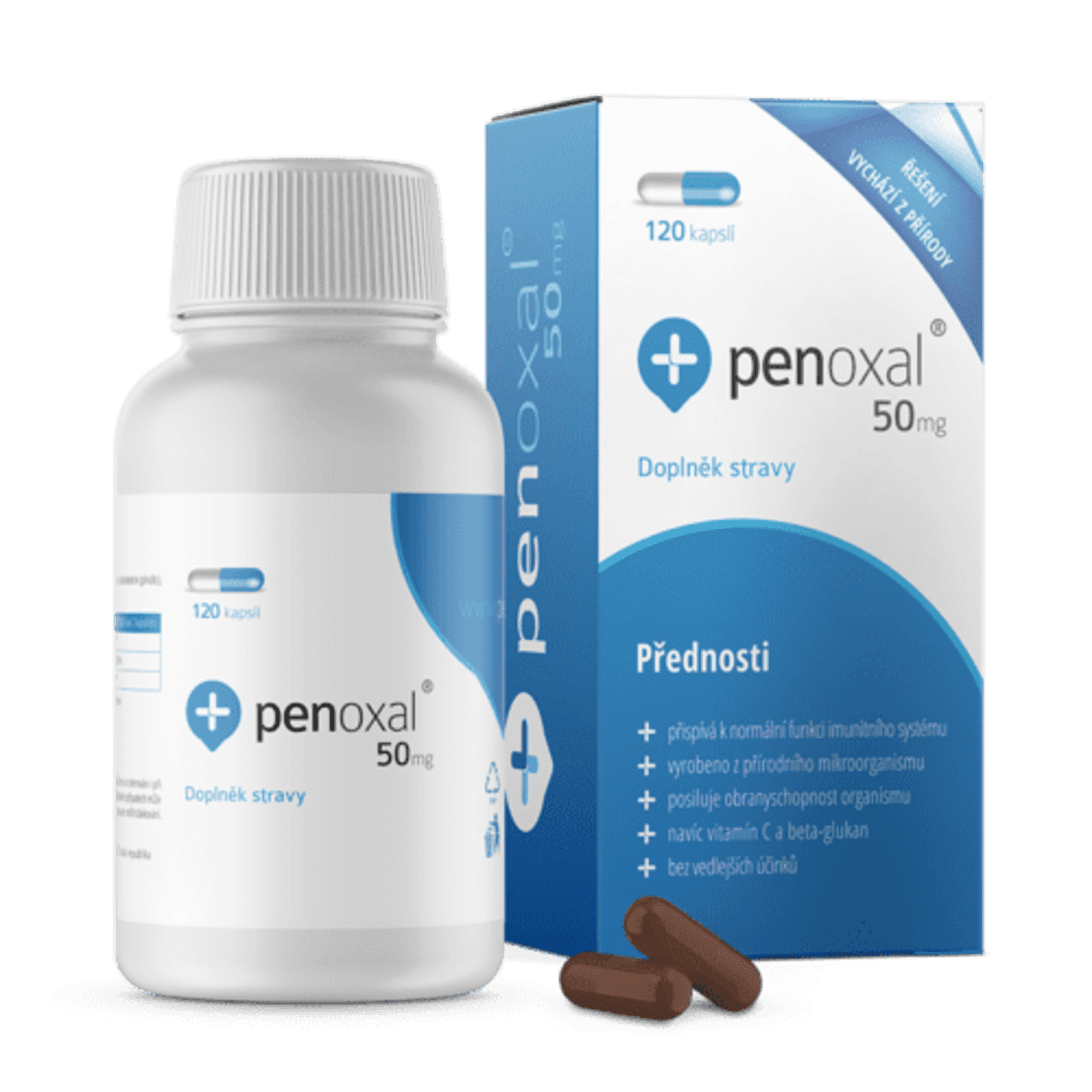Nel 2014 i medici mi hanno rimosso la tiroide, ma anche dopo mi sentivo sempre molto stanca. Ad un esame…
Leggi la storiaWhat is the use of Penoxal for immune problems?

Penoxal is a natural food supplement containing a unique patented substance called Biocol and its positive effect on the immune system is accentuated by vitamin C. Penoxal promotes primarily B and T-cells – white blood cells responsible for the immune response, it regulates death of the damaged or diseased cells, it helps a healthy functioning of the digestive tract, it alleviates symptoms of many diseases, it harmonises the entire body and thus contributes to the overall well-being. It interferes with no other medications and when used on a long-term basis, it demonstrates no toxic or other negative effects.
The recommended dosage during weak immunity is 2 capsules a day for 2 months
Professional information
M.D. Anna Galambos, Pharm.Dr. Thomas Arndt and other doctors confirm in their statements about Penoxal that it is suitable food supplement to complement gastroenterological treatments. Find out more about Penoxal users experience HERE.
We are a proud manufacturer of natural microorganism products
We focus on the production and sale of PENOXAL dietary supplement.
Our products are completely free of preservatives, artificial colors and have no side effects. They contain the active substance Biocol, which was discovered already in 1972.

Immunity and Penoxal
The immune system is a vital component of the human organism, which makes it possible to live in an unsterile environment, confront the effects of hostile microorganisms and prevent diseases. Today’s fast paced lifestyle, too much stress, unhealthy eating habits, lack of exercise and polluted environment weaken the immune system and as a result the body is more susceptible to develop gastroenterological, gynecological or oncological diseases. Every disease represents a burden for the body so it is gentler and more advantageous to prevent diseases and strengthen the immune system soon enough. Boosting the immunity is a must in today’s hectic life and it should be a natural part of a healthy lifestyle.
Read moreAlopecia – hair loss
Alopecia is an acquired skin disease that can affect all hair-bearing skin and is characterized by localized areas of non-scarring alopecia (hair loss). Alopecia is occasionally associated with other medical problems. Most often these bald areas regrow their hair spontaneously. Alopecia is rare before 3 years of age. There seems to be a significant inherited predisposition for the development of alopecia areata.
Read moreWhat is immune system?
The immune system composes of lymphoid organs and white blood cells. Lymphoid organs are highly specialised lymphoid tissues with a large number of lymphocytes and we differentiate them as primary and secondary. Beside secondary organs (spleen, tonsils), primary lymphoid organs play a very important role and these are thymus and bone marrow. The main function of thymus takes place during childhood; later with increasing age, it is replaced with fat. The bone marrow is the soft, spongy tissue that lays within the hollow interior of long bones and that is where new blood cells and platelets are produced. Between the age of 4 and 5 the haemopoiesis (formation of blood cells) takes place at the centre of all bones. If the function of bone marrow and blood is damaged, very often blood cancer (leukemia) is diagnosed. Mutual coordination of lymphoid organs and leukocytes make up the defence of the organism.
Read moreChronic Fatigue Syndrome
Chronic fatigue syndrome refers to a persistent tiredness with no apparent cause. It affects many people worldwide; commonly women aged 25 to 45. Although the cause is unknown, most experts agree that it may be due to the interplay of infectious, immunological and psychogenic factors.
Read moreHigher Genetic load
A higher genetic load refers to people who have a family history of diseases that might have been caused by a genetic predisposition. Genetic predispositions are associated with some diseases, specifically cancers. The risk of diseases due to the higher genetic load is influenced by many other risk factors. Psychological imbalance, allergies, a weak immune system, unhealthy diet, polluted environment and other aspects may greatly increase the risk of diseases. It cannot be suggested that people with the higher genetic load are more likely to get ill than the others. If we follow the risk factors such as smoking, alcohol or other unhealthy habits, then the absence of a genetic predisposition is of no help.
Read moreStrengthening the immune system
Read patient stories
Nel gennaio 2012 mi sono recato dal mio medico di famiglia per una questione abbastanza banale. Mi disse, tra l’altro,…
Leggi la storiaPer molti anni ho lottato contro un indebolimento delle difese immunitarie e una malattia chiamata endometriosi. Purtroppo i medici mi…
Leggi la storiaRaccontaci la tua storia
Aiuterà gli altri nel loro processo decisionale e saremo lieti di ricompensarvi per questo.
Maggiori informazioni

